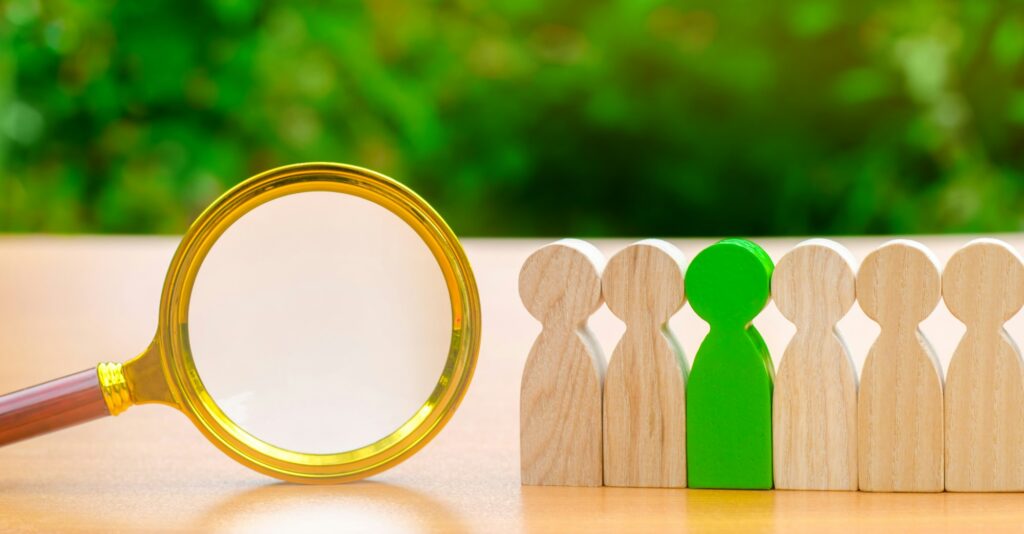Hey there! In our fast-paced world, where social media often steps in for real-life connections, feeling disconnected is pretty common, right? But what if this disconnection goes deeper, leaning towards antisocial behavior? Wondering how to not be antisocial?
The term “antisocial” might make you think of someone avoiding all social contact, but it’s more complex. It covers various behaviors and feelings that can hinder forming meaningful relationships. Ever felt this way or know someone struggling? Good news – understanding and change are possible. Let’s tackle these challenges together, fostering a healthier social life and lasting connections. Ready to make a positive change?

Understanding Antisocial Tendencies
Antisocial behavior comes in different shades, ranging from simply avoiding social events to more serious cases like antisocial personality disorder, as the American Psychiatric Association points out. Picture this: you’ve got the quiet introvert who prefers a good book over a party, and then there’s the extreme end where someone’s actions can really harm themselves or others. It’s like comparing staying in on a Friday night to causing real trouble.
We’re talking about more than just being a bit shy here. It’s about those behaviors that can really impact relationships and well-being. Think about how your family background, the world around you, and your own unique experiences all come together to shape how you interact with others. Your upbringing, the stuff you’ve been through, and even the company you keep can all be factors in why you may lean towards being more reserved or even veer into behavior that’s harmful.
Understanding these nuances is crucial because it’s not just about being the life of the party or the quiet one in the corner. It’s about recognizing where those behaviors stem from and how they can affect your life and those around you. So, next time you find yourself dodging a social gathering or feeling uncomfortable in a crowd, take a moment to reflect on what’s driving that behavior. It could be a lot more than just a case of shyness.

The Impact of Personality Disorders and Mental Health Conditions
Personality disorders, like antisocial personality disorder, borderline personality disorder, and conditions such as social anxiety disorder, can really affect how we connect with others. Let’s dive into this:
- Antisocial Personality Disorder: This can make it hard for someone to follow social norms and care about others’ feelings. For example, someone with this disorder might not feel guilty about lying or breaking the law.
- Borderline Personality Disorder: People with this disorder might struggle with intense emotions and have a hard time with relationships. For instance, they might constantly fear abandonment and have trouble regulating their emotions.
- Social Anxiety Disorder: This can cause extreme fear in social situations, leading to avoidance of interactions. Imagine feeling overwhelmingly anxious about speaking up in a meeting or even making a phone call.
These conditions don’t just pop up out of nowhere; they’re often influenced by a mix of things like our genes, how we were raised, and our life experiences. Early childhood experiences, like trauma or neglect, can leave a lasting impact on how we handle social situations as adults. Even the way we were parented plays a role in shaping our social behaviors. And let’s not forget how our brains work – neurotransmitters, hormones, and all that jazz can also impact our social tendencies.
So, if you or someone you know struggles with these conditions, remember that it’s much more than just a choice. Seeking professional help and understanding the root causes is critical in managing these conditions and building stronger relationships.

Recognizing Antisocial Behaviors
Now that we’ve touched on the complexities of antisocial tendencies, let’s dig into some specific behaviors and feelings to look out for. Keep in mind, it’s not about labeling yourself or others – this is simply a guide to help identify patterns and make positive changes.
- Avoiding Social Interactions: This behavior could range from intentionally skipping social gatherings, such as parties, to actively avoiding conversations with coworkers in the workplace, choosing solitude over social engagement.
- Feeling Disconnected: This emotional state can present itself as a persistent feeling of being an outsider in social settings, struggling to establish meaningful connections with others, and experiencing a sense of disconnection from the community or social groups.
- Being Indifferent: Individuals exhibiting antisocial tendencies may appear indifferent or uninterested in the emotions and experiences of those around them, showing minimal empathy or concern for others’ well-being.
- Isolating Oneself: This pattern of behavior involves spending a significant amount of time in solitude, either by choice or inadvertently, leading to self-imposed isolation and limited social interactions, which can further exacerbate feelings of loneliness and detachment.
- Lashing Out: In more severe instances, individuals with antisocial inclinations may display aggressive behaviors, such as lashing out verbally or physically towards others, expressing their frustrations or anger in harmful ways.
Keep in mind that these behaviors can also overlap with other mental health conditions and aren’t always indicative of antisocial tendencies. For those struggling with antisocial behavior or underlying mental health conditions, having a support system, including family members, close friends, and healthcare providers, is invaluable. Support groups and professional help, such as cognitive behavioral therapy, offer avenues for understanding and managing behaviors that hinder social interactions.

Breaking the Cycle of Antisocial Behavior
Embracing Social Situations
Stepping out of your comfort zone is easier said than done, but it’s a critical step towards overcoming antisocial tendencies. Start small by attending social events with a close friend or family member. Engage in small talk, find common ground with new people, and practice positive reinforcement to build your confidence in social settings. Remember, it’s okay to feel uncomfortable at first, and taking breaks if needed is perfectly acceptable.
Developing Social Skills
Understanding and improving your social skills can transform your social interactions. This includes learning about body language, the importance of empathy, and the rights of others. Recognizing and respecting social norms can also ease the anxiety associated with social situations. Practicing active listening and assertive communication can also help foster meaningful connections with others.
Seeking Professional Help
For many, professional help from a mental health provider or clinical psychologist is a key factor in managing antisocial behavior. Treatment options might include therapy for substance use disorder, group therapy for social skills development, or medication for underlying mental health conditions. Remember, seeking help is a sign of strength, not weakness. With the right support and treatment, it is possible to break the cycle of antisocial behavior and develop healthier social habits.
Lifestyle Changes and Long-Term Strategies
Lifestyle changes play a crucial role in reducing antisocial tendencies and fostering personal growth. By incorporating positive habits and choices into daily life, individuals can significantly improve their well-being and relationships. Here are some effective strategies:
- Reducing Substance Abuse: Limiting or eliminating the use of harmful substances like alcohol and drugs can lead to better decision-making and mental clarity.
- Engaging in Regular Social Activities: Participating in group activities, volunteering, or joining clubs can help individuals develop social skills and build a sense of community.
- Building a Supportive Social Circle: Surrounding oneself with supportive friends and family members who offer encouragement and understanding can provide a strong foundation for personal development.
- Establishing Healthy Relationships: Cultivating open and honest relationships based on trust and mutual respect is key to fostering a positive environment.
- Maintaining Close Connections: Regularly connecting with loved ones through meaningful conversations, shared experiences, and quality time together strengthens bonds and promotes emotional well-being.
By implementing these lifestyle changes and investing in meaningful connections, individuals can navigate challenges, enhance their mental health, and lead more fulfilling lives.

The Power of Understanding and Empathy
One effective approach to address antisocial behavior is by nurturing a culture of empathy and understanding, both towards oneself and others. Here’s how you can foster this environment:
- Recognize Others’ Feelings: It is important to actively listen and empathize with the emotions of those around you, showing genuine interest in understanding their perspectives and experiences.
- Acknowledge Impact: Recognizing the influence of your actions on others involves being mindful of the consequences your behavior may have on individuals and the environment, fostering accountability and empathy in your interactions.
- Show Remorse: Taking ownership of mistakes by expressing sincere regret and demonstrating a willingness to rectify any harm done plays a vital role in nurturing trust and fostering healthier relationships.
Remember, everyone faces their own challenges. By practicing empathy, we can contribute to a more compassionate and inclusive society. Let’s commit to learning more about antisocial behavior and strive to build stronger connections within our communities.
The Role of Social Media in Fostering Connections
While social media can be a powerful tool for connecting with others, it’s important to balance online interactions with real-life connections. Social media can sometimes exacerbate feelings of isolation or low self-esteem, so it’s crucial to use it in a way that supports, rather than hinders, your social life. Consider limiting screen time, taking breaks from social media, or using platforms to connect with others in a meaningful way rather than just for validation.
Conclusion: A New Look at Antisocial Behavior
Understanding antisocial behavior involves delving into various factors that influence it, ranging from personality disorders and mental health conditions to environmental influences and personal experiences. The positive news is that with dedication, professional guidance, and the backing of loved ones, it’s possible to overcome antisocial tendencies. It’s about making lifestyle adjustments, seeking positive social interactions, and embarking on a journey toward a more connected and rewarding life..
Remember, being antisocial isn’t a life sentence. With the right tools, support, and a willingness to change, anyone can break free from the chains of antisocial behavior and embrace a life filled with meaningful connections and experiences. So, take that first step out of your comfort zone, reach out for help if needed, and start creating the social life you deserve.
Socially Quirky
Welcome to Socially Quirky! Here's a cozy corner for all you introverts to explore, laugh, and grow. We’re all about celebrating the quiet strength within us. We’ve got lifestyle tips, fun stuff, and tools tailor-made to suit your introvert lifestyle. So, let’s embrace the quiet, find our unique spark, and kick back with folks who get us. Can’t wait for you to join our tribe at Socially Quirky!










